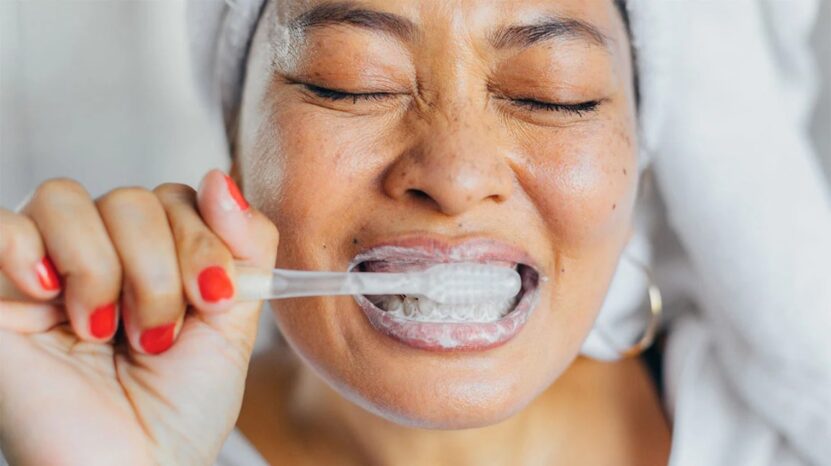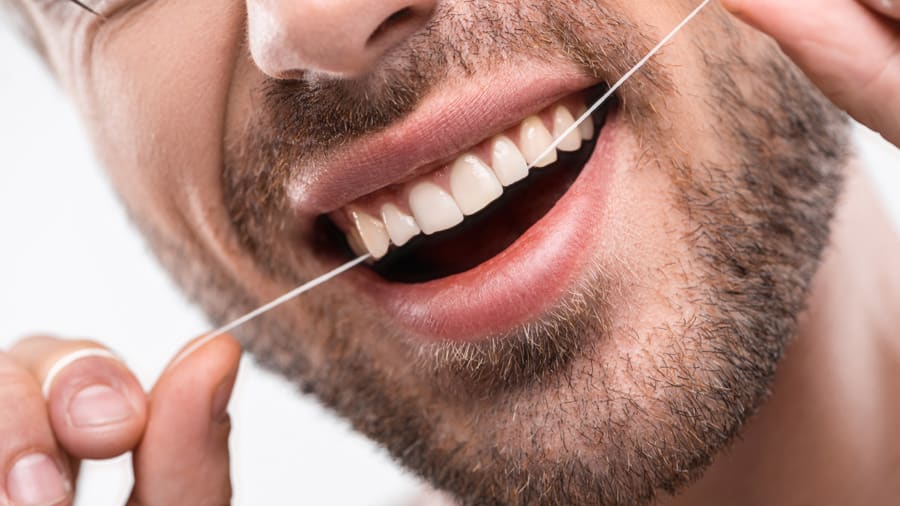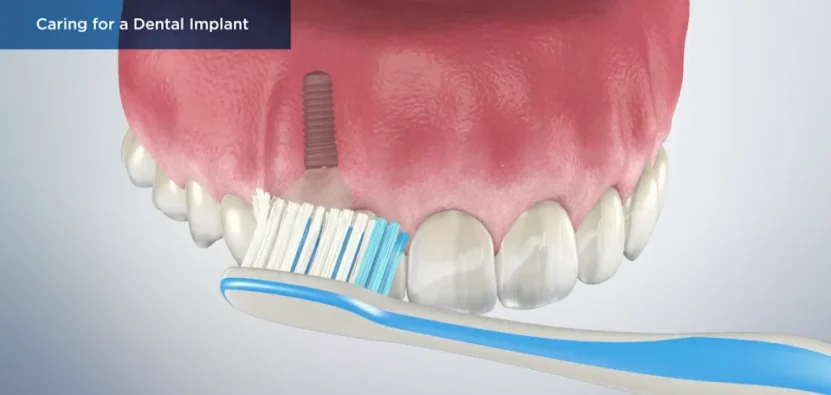Getting dental implants can be a game-changer. I remember when I got mine, I was thrilled with how they looked and felt.
But I quickly realized that, just like natural teeth, implants need some TLC to keep them in top shape. So, let’s chat about how to care for your dental implants and make sure they last as long as possible.
Why Proper Care Matters

Dental implants are a significant investment in your oral health and overall well-being. They provide a permanent solution to tooth loss and can help restore confidence in your smile. But without proper care, even the best implants can fail.
Good hygiene practices and regular dental check-ups are crucial to ensure your implants remain strong and functional.
Daily Oral Hygiene
Brushing

Brushing your teeth twice a day is non-negotiable. Use a soft-bristled toothbrush to clean your implants. Hard bristles can scratch the surface of the implants and your gums, potentially causing irritation. I personally prefer an electric toothbrush because it makes the process easier and more efficient.
Toothpaste
Choose a non-abrasive toothpaste. Some whitening toothpastes can be too harsh for implants and natural teeth alike. Look for a toothpaste that is gentle yet effective. Your dentist might have specific recommendations, so don’t hesitate to ask.
Flossing
Flossing is just as important as brushing. It helps remove food particles and plaque from between your teeth and around the implants. There are special flosses designed for dental implants, such as floss threaders or interdental brushes, which can make the process easier.
Mouthwash
Using an antibacterial mouthwash can help keep your mouth clean and reduce the risk of infection. Opt for an alcohol-free mouthwash to avoid dryness, which can irritate your gums and implants.
Regular Dental Check-Ups
Even if you’re diligent about your daily oral hygiene, regular check-ups with your dentist are essential. During these visits, your dentist will examine your implants and gums, ensuring everything is in good condition. They can also professionally clean areas that are hard to reach with your toothbrush and floss.
Diet and Lifestyle
Healthy Eating

What you eat can affect the longevity of your dental implants. A diet rich in fruits, vegetables, lean proteins, and whole grains supports overall oral health. Try to avoid sugary snacks and drinks, as they can contribute to plaque buildup and gum disease.
Avoiding Harmful Habits
Certain habits can damage your implants and natural teeth. Here are a few things to steer clear of:
- Smoking: Smoking can increase the risk of implant failure and gum disease.
- Chewing on Hard Objects: Avoid chewing on ice, hard candies, or pens. These can crack your implants or damage your gums.
- Teeth Grinding: If you grind your teeth at night, talk to your dentist about getting a mouthguard to protect your implants and natural teeth.
Recognizing Potential Issues
It’s important to keep an eye out for any signs that something might be wrong with your implants. Early detection can prevent more serious problems down the road. Here are a few things to watch for:
Gum Redness and Swelling
If your gums around the implant start to look red or swollen, it could be a sign of infection. Make an appointment with your dentist as soon as possible to get it checked out.
Discomfort or Pain
While some discomfort is normal after the initial placement of the implants, persistent pain is not. If you experience ongoing pain, reach out to your dentist to identify the cause.
Loose Implants
Dental implants should feel stable. If you notice any movement or looseness, it’s important to see your dentist immediately. Loose implants can be a sign of bone loss or infection.
Long-Term Care Tips
Consistency is Key

One of the best pieces of advice I can offer is to stay consistent with your oral hygiene routine. Brushing, flossing, and using mouthwash every day will go a long way in maintaining the health of your implants.
Invest in Quality Tools
Consider investing in high-quality dental tools. An electric toothbrush, interdental brushes, and a good mouthwash can make a significant difference in your oral hygiene routine.
Stay Hydrated
Drinking plenty of water is great for your overall health and helps keep your mouth clean. Water can help wash away food particles and bacteria that can cause plaque and gum disease.
Follow Your Dentist’s Advice
Your dentist is your best resource for maintaining your dental implants. Follow their advice and don’t hesitate to ask questions if you’re unsure about something.
Extra Tips You’ll Find Useful

I’ve found a few extra tips helpful in caring for my dental implants:
Be Gentle
Treat your implants with care. While they are strong, they still need gentle handling. Avoid using too much force when brushing or flossing.
Create a Routine
Establishing a regular oral hygiene routine has been a game-changer for me. Set reminders on your phone to ensure you don’t forget to brush, floss, and rinse, especially on busy days.
Stay Informed
Keep yourself informed about the best practices for dental implant care. New products and techniques are always emerging, and staying updated can help you maintain your implants more effectively.
Using the Right Tools for Implant Care
A quality electric toothbrush can make a world of difference, providing a deeper clean with less effort compared to manual brushing. Look for one with soft bristles to protect your gums and the surfaces of your implants. Interdental brushes are another fantastic addition to your oral hygiene arsenal.
They come in various sizes and can reach those tricky spots between teeth and implants that floss might miss. Water flossers, or oral irrigators, are also great for flushing out debris and plaque from hard-to-reach areas. Using a water flosser can be really good as well. It’s gentle yet effective, and it leaves your mouth feeling incredibly fresh. Investing in these tools not only makes the cleaning process more efficient but also ensures that your implants remain in top-notch condition for years to come.
Final Thoughts
Caring for dental implants doesn’t have to be complicated. With a consistent oral hygiene routine, regular dental check-ups, and a healthy lifestyle, you can ensure your implants remain in excellent condition. Remember, your dentist is there to help, so don’t hesitate to reach out with any questions or concerns.
Taking care of dental implants is all about developing good habits and sticking to them. It’s worth the effort to keep that bright, confident smile. I hope my tips and personal insights help you in your journey to maintaining healthy dental implants.

